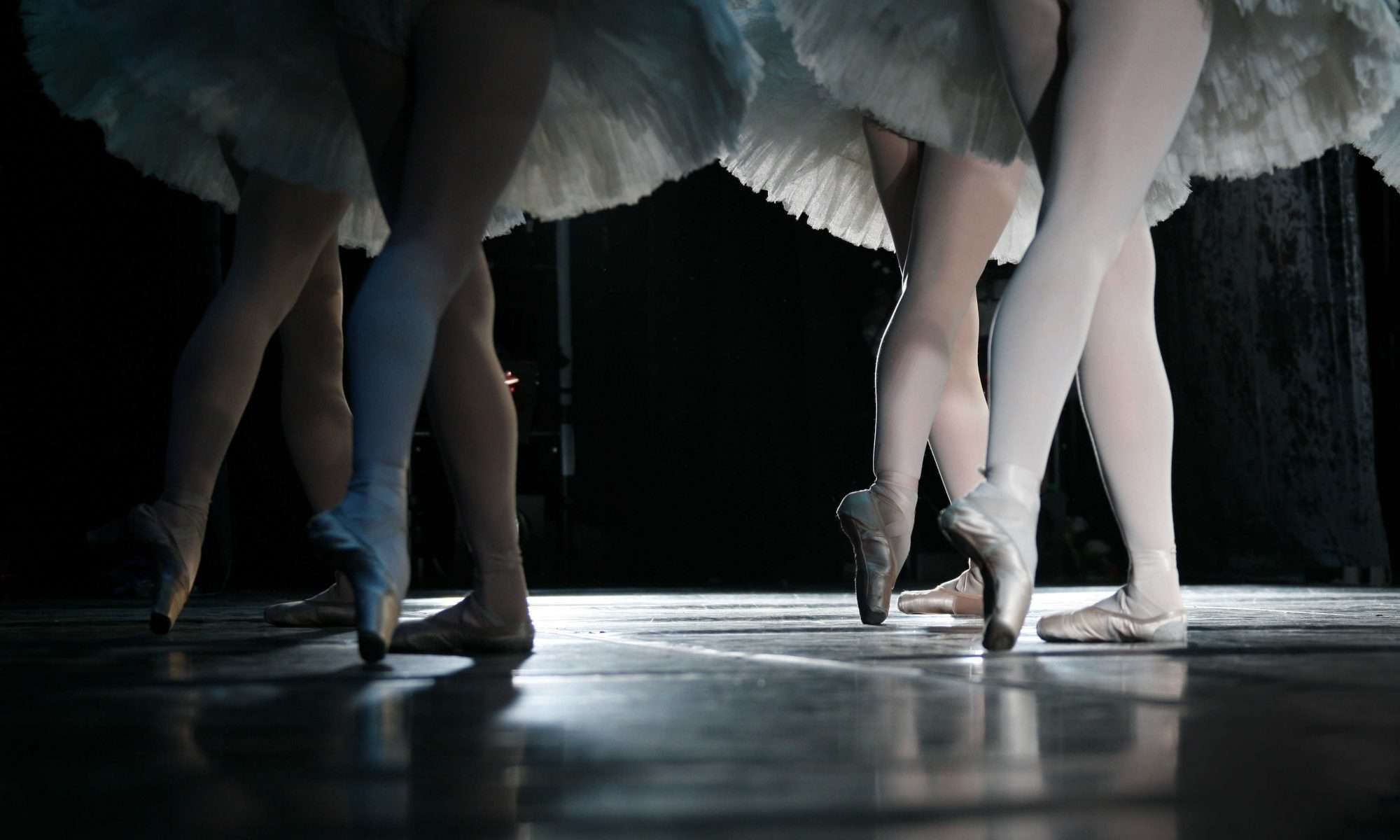
Every now and then I get the itch to go back in time. I put on an old VHS tape from my ballet dancing days–mostly what I have on tape are from performances at the University of Arizona when I was working on my MFA degree–and I can’t believe the courage I had back then. It was common to work with other graduate students, performing their choreography so they’d reciprocate the favor, and I often worked with a guy named David Woods. We were usually paired up for partnering anyway because of our heights (suffice it to say he was not a real tall guy and I was always one of the shortest dancers around). But some of the stuff that David came up with was really nuts! I remember him describing what he wanted to try, and I’d just shake my head and say, “Impossible!” He would let loose his funny little laugh, then get all straight-faced and start explaining the mechanics of the move in question.
And we’d do it.
Maybe partly it was a trust thing; I worked with him everyday and we rehearsed so much it practically became second nature by the time we performed his crazy little notions in front of an audience. We were also in incredible shape back then. I have to remind myself that at one point in my life I really had some major control of my body. And with a partner giving me the edge I needed, there was no limit to the number of finger turns or pirouettes I could pull out, or the length of time I could hold a pose. My strength and flexibility were taken for granted back when they came so easily–you should see me sweating like the overweight, over-the-hill, mother-of-three that I am today during just the first five minutes of yoga class. On second thought, no, you shouldn’t.
There was more to it than that, though. We were just as likely to miss as we were to hit some of the stunts we did in rehearsal, but in front of an audience we almost never missed. There was the arrival of an extra power within that always showed up just in time to lasso the butterflies from overdrive into automatic pilot. My body knew what to do; every minute on stage had been rehearsed hours on end for weeks leading up to that minute. But looking back, I remember there were steps I took to ensure that would be the case before each and every performance.
1. Don’t take yourself too seriously. I mean, really, what’s the worst thing that could happen? And if you know of things that could go wrong, make pretty darn sure they don’t. (Double fold the ribbon before sewing it to your pointe shoes, stitch the ribbons after you’ve tied them so they can’t come unraveled on stage, put the extra pins in your bun and use a hair net to firmly secure it, etc.) My dad taught theater at the high school level and even though he tended to worry about every last detail, when it came down to performance night he always had a saying that I repeated to myself before stepping on the stage: It’s just a show. With emphasis on the word ‘just’.
2. Warm up thoroughly. Take class with the cast before the show. Not only does this make you part of a team, it shows you have respect for whoever is teaching. By all means, if the teacher asks for something you know will pull a muscle before you’re sufficiently warm, modify it until you’re warm enough. Most teachers won’t do this as part of a performance warm-up, but if they do then you are fine to lower the extension from 90 degrees to 45 if you aren’t ready. By the same token, after warming up with the cast go over the choreography that tends to trip you up. Practice that big lift with your partner just to make sure you’re both feeling it right. Whatever. Just make sure that before you step onstage in full make-up and costume that you are really warmed up.
3. Make a list and check it twice. This is before you even set foot in the theater. There’s nothing worse than finding out you have only one pair of tights and there’s a big run in them. Have plenty of extra pins, all your make-up, all the pieces to your costume, extra tights, shoes, and whatever else you may need so you don’t go into panic mode thirty minutes to curtain.
4. Give yourself plenty of time to get into make-up and costume. If you have a quick change, do everything in your power to make it as fast and painless as possible. Usually there are people around backstage who will assist in such a case, so you don’t have to spend time and energy trucking back and forth to the dressing room. Make sure to practice with them at dress rehearsal so they know the drill.
5. Spend a few moments alone.
6. Meditate or pray. Clear your mind. When you do this is totally up to you. I usually made sure I had some time to just do my own thing or hear my own thoughts for a while before making my way to the stage door. If not, then I would simply close my eyes in the wings and take a few deep breaths to put everything in perspective.
7. Put your trust in something greater than yourself. My dad always said the audience was the magic ingredient, and I tend to agree. They want you to succeed; nobody goes to the ballet to hold onto their theater seats wondering if you’ll come out of that lift alive or not. They know you will, and you’ll do it gracefully! Just deliver what they expect and you’ll be fine.
8. Don’t second guess yourself. If you’re doing a part that you think someone else was more qualified to perform, well, you weren’t the casting director, were you? No artistic director will put you in a role that they don’t believe you can pull off.
9. Be in the moment. I remember one night when David and I were dancing the Black Swan pas de deux from Swan Lake (and dang if it wasn’t a dress rehearsal that no one got on tape!) and we were so in sync with the music and with each other…we were so ON it was almost scary. It was the closest to perfection I’ve ever come in my life, and I’ll treasure those few minutes always. I was in the moment, enjoying the fruition of all the hours of labor leading up to that point in time.
10. Never let a mistake show on your face. Unless you’re in the corps, supposedly doing the same thing as the other ten or eleven people on stage, if you mess up no one will even notice…if you don’t show it in your face. Stay in character always, and immediately forgive yourself for any mistakes you make. There’s nothing more capable of ruining a performance than berating yourself mentally over a small mistake that probably no one even noticed. Remember that what is past can’t be changed; it can affect the future only if you let it.
Even though I haven’t been dancing professionally for the last several years, I’m sure many of these are time resistant and would still apply. And not only would many of these steps be helpful to a dancer preparing to take the stage, they could also help anyone who has to suffer the effects of butterflies: someone preparing to step into an interview, or walk down the aisle at their wedding, or call an agent about a book they’re hoping to publish.
Any other dancers out there who have more tips to banishing the butterflies? Please leave a comment!


